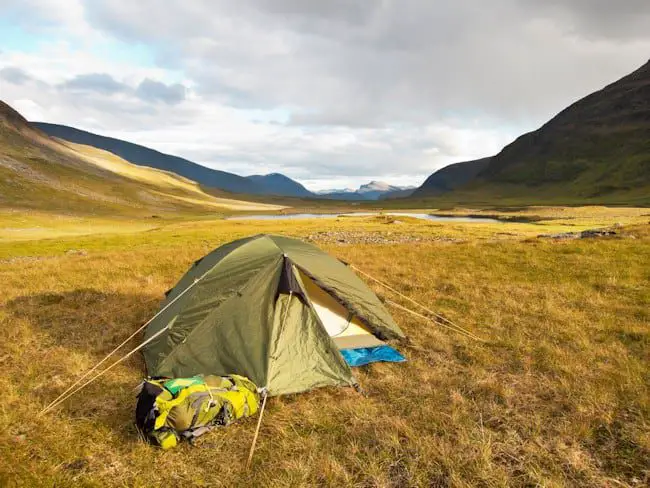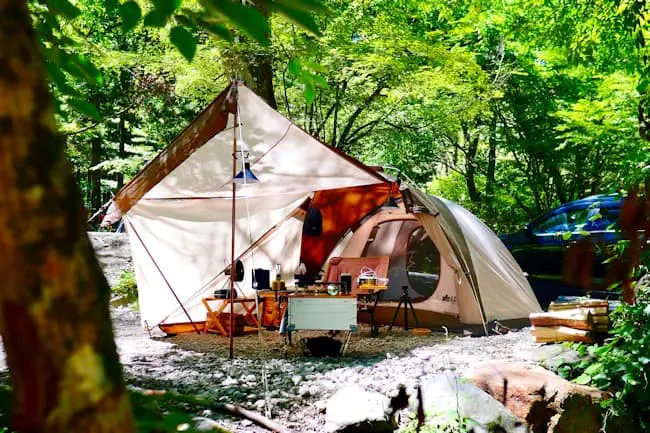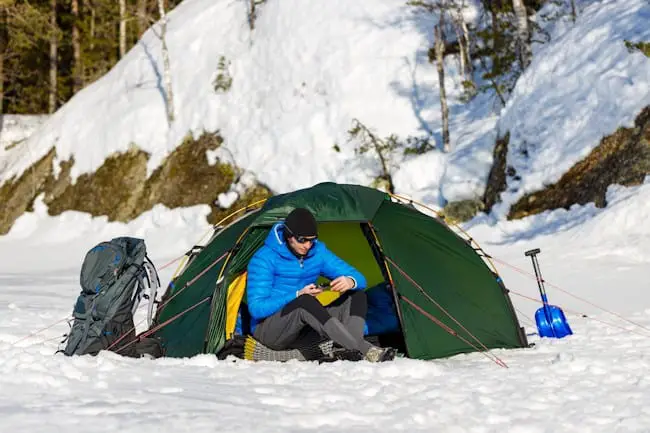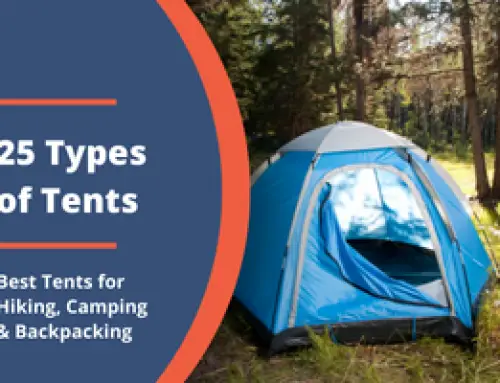Did you know that there is a significant difference between a backpacking tent and a camping tent?
Each is a great tent, but depending on the type of camping you are doing, one tent will be a better option.
To make sure you choose the best tent for your trip, we’re going to break down the difference between a backpacking tent vs a camping tent.
What Is a Backpacking Tent?
As the name suggests, these tents are designed to be carried in or attached to a backpack. They are primarily used by backpackers and hikers.
It’s a perfect option for long-distance trips.
These lightweight tents provide a perfect balance between portability and comfort.
What Is a Camping Tent?
These types of tents are mainly used for car camping or base camping. They tend to be bulkier and heavier than backpacking tents.
But they are more durable, spacious, and versatile. Some have multiple rooms and can fit an entire family.
4 Factors to Consider When Comparing Backpacking and Camping Tents
The four factors to consider are: capacity, weight, seasonality, and cost.
Capacity
Backpacking Tent – This tent size is generally designed to hold between one to four people, with two and three-person tents being the most common.
To best accommodate their campers, backpacking tents typically come in these styles:
- Dome
- Fly + Footprint
- Tarp Shelter
- Hammock
- Bivy Sack
Camping Tent – It provides maximum inner tent floor space and can hold as many as 16 people in one tent. These tents can be purchased as a large single room or with several sleeping “rooms” or “pods” connected together.
The most popular styles to accommodate so many people are:
- Dome
- Tunnel
- Cabin
- Geodesic or Semi-Geodesic
Weight
Backpacking Tent – Since these are designed to be carried over long distances, they need to weigh as little as possible.
Backpacking tents on average weigh under four pounds, but can weigh as little as one pound.
To cut down on the weight, backpacking tents can have reduced space, fewer features, and less durability.
Camping Tent – Camping tents are manufactured heavier on purpose. The manufacturer knows that camping tents will be transported by car or motorcycle instead of being carried around on someone’s back.
On average, these types of tents weigh 2.5 pounds per person.
The increased space and functionality of these tents directly affects their weight.
Seasonality
Tents come with a season rating.
- One-Season: Intended mainly for summer use and can only withstand a quick rain shower and a light breeze.
- Two-Season: Some tent manufactures have a two-season rating, but it is essentially the same as a one-season.
- Three-Season: Built to withstand the typical conditions; rain, wind, light hail and mildly cold weather.
- Four-Season: Designed to handle everything else; heavy snow, high winds, harsh winters and even blowing sand.
Backpacking Tent – Backpackers sometimes end up camping in unpredictable weather conditions. For this reason, backpacking tents usually come with a three-season or four-season rating.
Camping Tent – Some of the more budget-friendly camping tents come in a one or two-season rating, but most camping tents have a three-season rating.
Cost
When looking at the cost between a backpacking tent and a camping tent, several factors are at play – materials, size, season rating, and weight.
Typically the lighter the tent, the higher the season rating, and the more people it can sleep the more money the tent will cost.
Backpacking Tent – These tend to come in lightweight materials, smaller size, and more durable season ratings. Because of this, backpacking tents tend to be more expensive than camping tents. Most of the high quality ones cost over $300.
Camping Tent – Because these come in so many sizes and materials, the price range is vast. Budget-friendly options can cost as low as $50 whereas the higher quality ones can exceed $500.
Which Will You Choose?
If you’re trekking or hiking, go for a backpacking tent.
If you’re planning on group camping or family camping consider a camping tent.
When you purchase a tent, keep 4 things in mind:
- Capacity
- Weight
- Season Rating
- Cost
If you purchase your tent with these things in mind you’ll get the best camping experience.
Hopefully, you are now aware of the main differences between a backpacking tent vs camping tent and already know which type of tent is best for your trip.
So, what are you waiting for?
Get out there and enjoy the great outdoors in your soon-to-be new tent.












Leave A Comment